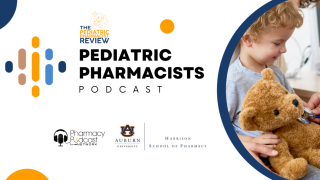A Year of Unparalleled Contributions to Public Health

“It has been a year like no other in recent memory for public health at the U.S. Food and Drug Administration (FDA), with much of our focus has been dominated by our response to the COVID-19 pandemic,” stated Stephen M. Hahn, M.D., Commissioner.
“We’ve continued to make important scientific progress, with each day bringing new knowledge and understanding of the SARS-CoV-2 coronavirus and the disease it causes, COVID-19, leading to the issuance of Emergency Use Authorizations (EUA) for two vaccines, and an increased availability of testing and treatment options,” added Dr. Hahn’s editorial issued on December 28, 2020, which is excerpted below.
When I first joined the FDA, I established three strategic priorities: 1) unleashing the power of data, 2) empowering patients and consumers, and 3) promoting innovation, choice, and competition to advance scientific and medical progress.
As you can see below, through our work on COVID-19 and our regular mission-critical public health work, we have made significant progress on those priorities in 2020. What follows is just a sampling of the FDA’s achievements over the past year, representative of contributions that FDA staff continue to make – from all parts of the agency – day in and day out.
In 2020, our biosafety and biosecurity professionals were integral to addressing the conditions for FDA staff to return to work safely, including laboratory staff doing SARS-CoV-2 research, given the new challenges and constraints posed by the transmission characteristics of SARS-CoV-2.
On the COVID-19 front, the FDA issued new guidance for conducting clinical trials during COVID-19 to facilitate changes in conduct that would protect participant safety and maintain data integrity.
Currently, there are more than 590 COVID-19 drug development programs relating to COVID-19 in the planning stages, more than 390 trials that have been reviewed by the FDA, eight treatments for use during the COVID-19 pandemic authorized through EUAs in collaboration with the Office of the Chief Scientist (OCS), and we approved the first drug to treat individual patients with COVID-19.
We’ve continued our essential work to ensure access to cost-saving drugs and needed medications. As of November 30th, the FDA has approved or tentatively approved more than 800 generic drugs, including 65 first generics, such as a new approval for the treatment of severe hypoglycemia (very low blood sugar), one for a widely used albuterol inhaler to treat breathing conditions, and another to treat a parasitic infection.
We have also worked to help improve patient access to insulin, issuing draft guidance that describes our recommendations regarding a streamlined approach to demonstrating biosimilarity and interchangeability for certain insulin products.
The diagnostic tests, personal protective equipment (PPE), infusion pumps, ventilators, and other devices authorized under EUAs have been instrumental in the public health response to the pandemic. CDRH also implemented a coordinated response to help address potential device shortages, given the increase in global demand and supply chain disruptions resulting from COVID-19.
To expand access to critical PPE supplies for health care personnel, such as respirators, CDRH issued guidances for immediate implementation, communicated conservation strategies, and published many Emergency Use Authorizations.
Most recently, we held two meetings of the Vaccines and Related Biological Products Advisory Committee (VRBPAC) to seek input from independent scientific and public health experts on each of the vaccine candidates, underscoring our commitment to being as open and transparent as possible about the data and information needed to support authorization of these vaccines.
This input, along with the careful and thorough evaluation by CBER’s career scientists, will give the public and medical community trust and confidence that these vaccines meet the FDA’s rigorous standards for safety and effectiveness.
The FDA’s work to advance our vital public health mission through global engagements is yet another reminder of the sheer scope of the agency’s reach.
The importance of the FDA’s global engagements has been affirmed through the collaborations to support its COVID-19 pandemic response efforts, including our Europe Office supporting the first global regulatory workshop on COVID-19 vaccines, under the auspices of the International Coalition of Medicines Regulatory Authorities, to discuss strategies to facilitate the development of SARS-CoV-2 vaccines and promote regulatory convergence to the extent possible.
We also took vital action to help ensure the American public is more prepared and protected against future outbreaks of emerging infectious diseases, such as COVID-19, as well as chemical, biological, radiological, and nuclear threats, by identifying a list of 227 drug and biological product medicines and 96 device medical countermeasures that are medically necessary to have available at all times.
COVID-19 has added new urgency to ongoing work at the FDA to apply new data sources, including real-world data, to inform our decision-making.
Early in the pandemic, the FDA recognized that a diverse set of data sources would be needed to provide rapid, actionable information. The FDA developed research projects that combine new data sources with rigorous analytical techniques to better understand COVID-19 symptoms and the patterns of use of therapeutics and diagnostics, among many other research questions.
Our groundbreaking work with the COVID-19 Evidence Accelerator, a new community of data researchers from government, academia, and industry, grew around a common goal: deploying rigorous, novel, and transparent methods of applying data to inform the response to the pandemic.
Finally, another way we are working to increase access to critical medical products and lower production costs, and decrease the risk of supply disruption, is through adopting innovative technologies, such as advanced manufacturing.
This kind of work ethic and dedication to the FDA mission – effective, efficient, and focused on protecting and promoting public health on behalf of the American patients and consumers we serve – is evident across the FDA.
I commend the entire FDA team for working so hard on behalf of the American public. I know this same focus and diligence will lead us to a successful and productive 2021 concludes Dr. Hahn’s comments.
PrecisionVaccinations publishes research-based news.
Our Trust Standards: Medical Advisory Committee

























